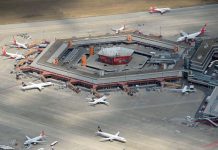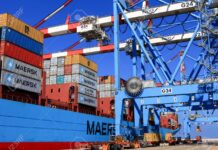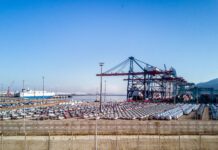Technological advancement is the key factor behind driving economic growth now and in the future. However, as this technology develops it becomes more and more clear that the influence of Artificial Intelligence (AI) and Automation are the pathway companies are taking to revolutionise productivity while cutting costs and hours needed which takes away the subsequent need for human involvement. So, with the perceived benefits established how will this affect the availability of work for the people involved? By Matthew Meehan
Well in terms of economic prosperity, the introduction of AI would be a financially revolutionary prospect. According to figures, the predicted amount that would be produced is around $15 Trillion into the global GDP by 2030 and within that ten-year period this extra wealth would actually allow for the creation of more jobs with the greater processes creating need for further men to work around them.
In a study by PWC, statistics indicated that when considering a 20-year period across 29 different countries there was only a 3% predicted number of job displacements in the initial introduction phase which would then increase tenfold to 30% over a further ten-year period with the UK and most of Europe abiding by this figure range. What this means for employment is that such a shift would be considered as highly successful with such a great new innovation only affecting such a small number of roles in the first period whilst providing much larger employment prospects as a result of the increased production growth. The main markets affected would be the financial services due to the ease of creating efficient and in-depth analysis tools and also the introduction of autonomous, driverless transport where human interaction is more a chore than a necessity whilst in human centric professions such as medical care and research, the introduction of AI would work harmoniously to assist and improve the efficiency of the necessary workers involved.
Even when such consideration is the effect on the calibre of worker, with on average 40% of low education workers being likely being displaced – this creates the possibility of personal impact by encouraging the personal development of the working class due to a change in the nature of their roles which just like the first industrial revolution would provide greater opportunity and make it imperative for more affordable access to higher skilled training and education which would subsequently lead to improved living standards, although this kind of improvement as proved by history can take significant time to truly materialise and recent automation has been shown to have actually caused to have caused a decline in employment.
Despite this, balance is restored when considering that the use of such technology will therefore require people to maintain and fix these new machines, oversee their operation/production and also to attend to the produced products once they are created which should this grow at the expected rate then this creates a market environment where more firms subsequently seek to continue to create better or cheaper products as a competitive advantage, with this leading increased demand, investment and necessary innovation which only grows the number of roles that are needed to levels expected to outnumber the original figures. This kind of production ability where menial tasks are no longer susceptible to human error also allows for greater improvements in the global condition as with people pursuing more creative and well intentioned career paths there is more emphasis on being able to harness the sheer mechanical power to eliminate major
issues such as diseases due to the advanced abilities in medical research and using AI software to target the areas that are most in need of help and response.
However, there is much greater concern for this development than the economy may have you believe with the impact being estimated to possibly be 3000 times larger than the actual industrial revolution which would lead to greater displacement than figures have currently predicted to happen. Should this be the case then the lack of education means that in the immediate term there is no change in upward mobility of the population as the education level is not raised and the lack of knowledge means the current workers are not equipped or able to handle the possibly hazardous and complex introduction of the new technology.
Alternative figures even estimate that there could be 400-800 million workers displaced by 2030 which as a life changing event for most of the working class who form the majority of the country then the resulting culture shock has the potential to cause chaos in every nation as mass uprisings particularly in the west would result in the introduction of authoritarian governments in an attempt to keep the public from damaging and destroying major public destinations in protest with the rebels to the cause of advancement could theoretically wage war on their local communities as their constituents fight, vandalise and steal in an attempt to combat their everchanging landscape.
As evidenced by the current situation in Britain and the Brexit crisis, it is presumable that when faced with political turmoil, a leader such as Boris Johnson would not be able to show the kinds of strength and foresight to overcome the possible risks and help the people navigate strange and scary times for the blue-collar workers in the country. Even in modern times, the perception is that the cornerstones of education are mostly unchanged from even our past farming days and therefore great educational reform would be needed in order to train and develop society to work effectively alongside the newer sources of manual labour.
The alternative take on this situation however is also to look at it objectively and simply say that in its current state, the impact of AI and Automation will be greatly limited as a result of it not being prevalent enough throughout modern society. Whilst slowly introducing itself, the tasks and routines it can currently perform are limited at best and is not yet intelligent to a level where it can fulfil certain roles with any degree of necessary accuracy. AI is not quite where it needs to be, but as it slowly is having an incredible impact on the way we operate in our day to day lives, industries and its workers will need to adapt to survive to ensure their future in an intelligent and mechanical world.












































